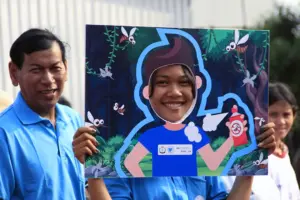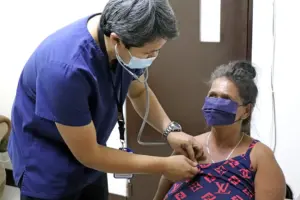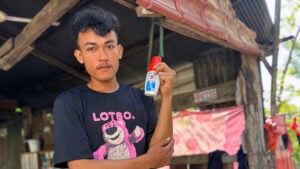Mobile and migrant populations participate in malaria health education session provided by village malaria worker under the Cambodia Malaria Elimination Project (CMEP). Photo credit: Saban Samloth
Cambodia
Cambodia has achieved significant improvements in health outcomes in the past few decades. Indicators across all areas of primary care have improved significantly: life expectancy has increased, child health has improved, maternal mortality has decreased, and accessibility to basic water and sanitation has improved. Malaria and HIV are successfully controlled as Cambodia has moved towards eliminating these diseases. Health financing has improved, and Cambodia has successfully expanded the Health Equity Fund nationally to provide health insurance to the poor. The Cambodia-Thailand border continues to be an epicenter of drug-resistant malaria with hard-to-reach, vulnerable populations in this area particularly at risk.
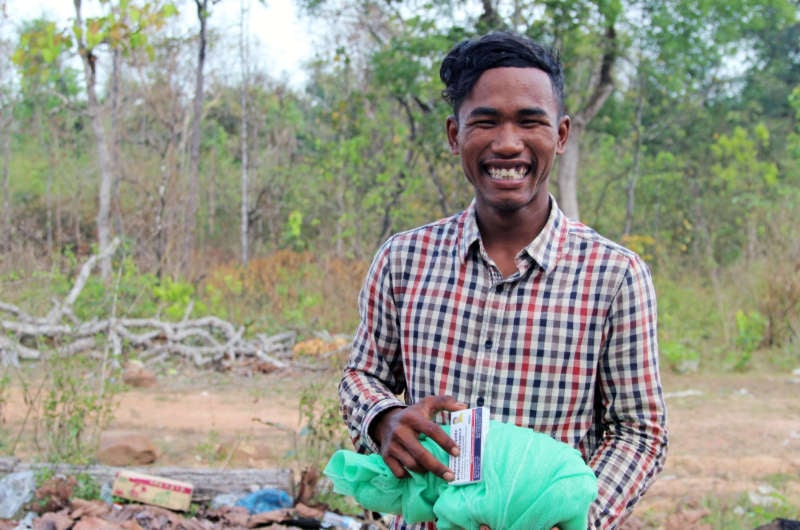
For the past 20 years, URC has implemented projects in Cambodia supporting health areas ranging from infectious diseases to family health. URC’s efforts in Cambodia have included support for quality improvement, health systems strengthening, research and evaluation, health communication, and behavior change.
URC’s work in Cambodia started in 2002 with the USAID-funded Cambodia Health Systems Strengthening Project (2002-2008). URC also implemented the Cambodia Health Equity Funds Project (2006-2009), and the Better Health Services Project (2009-2013), also funded by USAID.
Zero Malaria Deaths in Cambodia since 2018
Since 2007, URC has supported the Royal Government of Cambodia and the National Center for Parasitology, Entomology and Malaria Control (CNM) to move toward malaria elimination through four consecutive U.S. President’s Malaria Initiative (PMI) and USAID projects:
- Malaria Control in Cambodia (2007-2012), which developed, adapted, and expanded the use of evidence-based interventions for malaria prevention, diagnosis, and treatment and strengthened malaria program management capacity;
- Control and Prevention of Malaria Project (2011-2016), a regional project working in Cambodia, Myanmar, and Thailand on malaria control and containment of drug-resistant malaria within the Greater Mekong Subregion, specifically focusing on cross-border areas. In Cambodia, the project consolidated proven malaria interventions and began working with CNM on a vision toward malaria elimination;
- Cambodia Malaria Elimination Project (2016-2021), further refined the model elimination package and implemented best practices to address the incidence of malaria in forest areas. The project worked with CNM to prepare for scaling up the model to a growing number of provinces; and
- Cambodia Malaria Elimination Project 2 (2021-2026), which continues working with CNM to eliminate malaria, prevent its re-introduction, and control the development and spread of drug-resistant malaria in the Greater Mekong Subregion.
USAID Cambodia interviewed Dr. Sokomar Nguon – URC’s Senior Technical Advisor on both iterations of the Cambodia Malaria Elimination Project – for their Health Champion series. Dr. Sokomar and his technical team worked diligently to decrease malaria cases in the Battambang, Pailin, and Pursat Provinces, and more recently, also in Kampot, Kep, and Koh Kong Provinces. While the numbers have decreased significantly, the highest rates of malaria transmission are seen among mobile and migrant populations in forested areas.
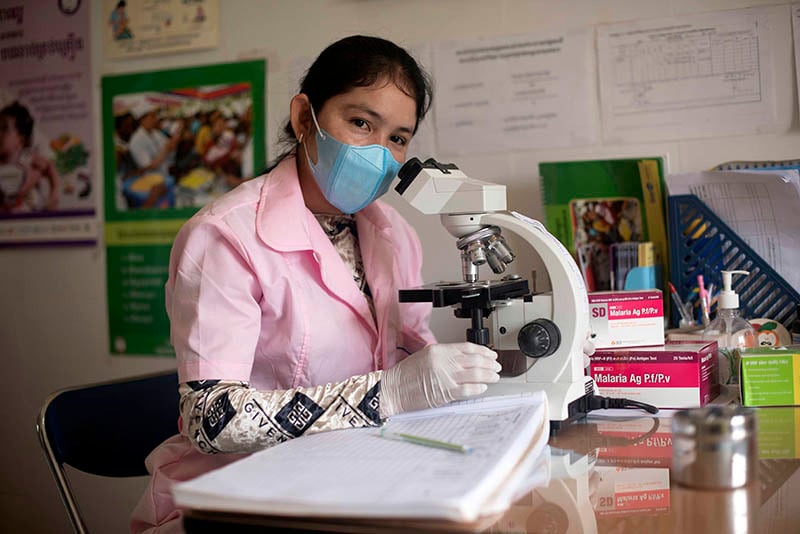
Current Projects
- URC’s support of Cambodia’s malaria elimination efforts are continuing under the Cambodia Malaria Elimination Project 2 (CMEP2).
